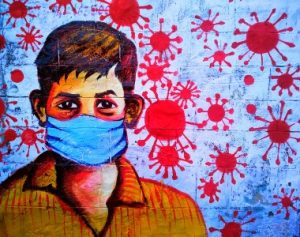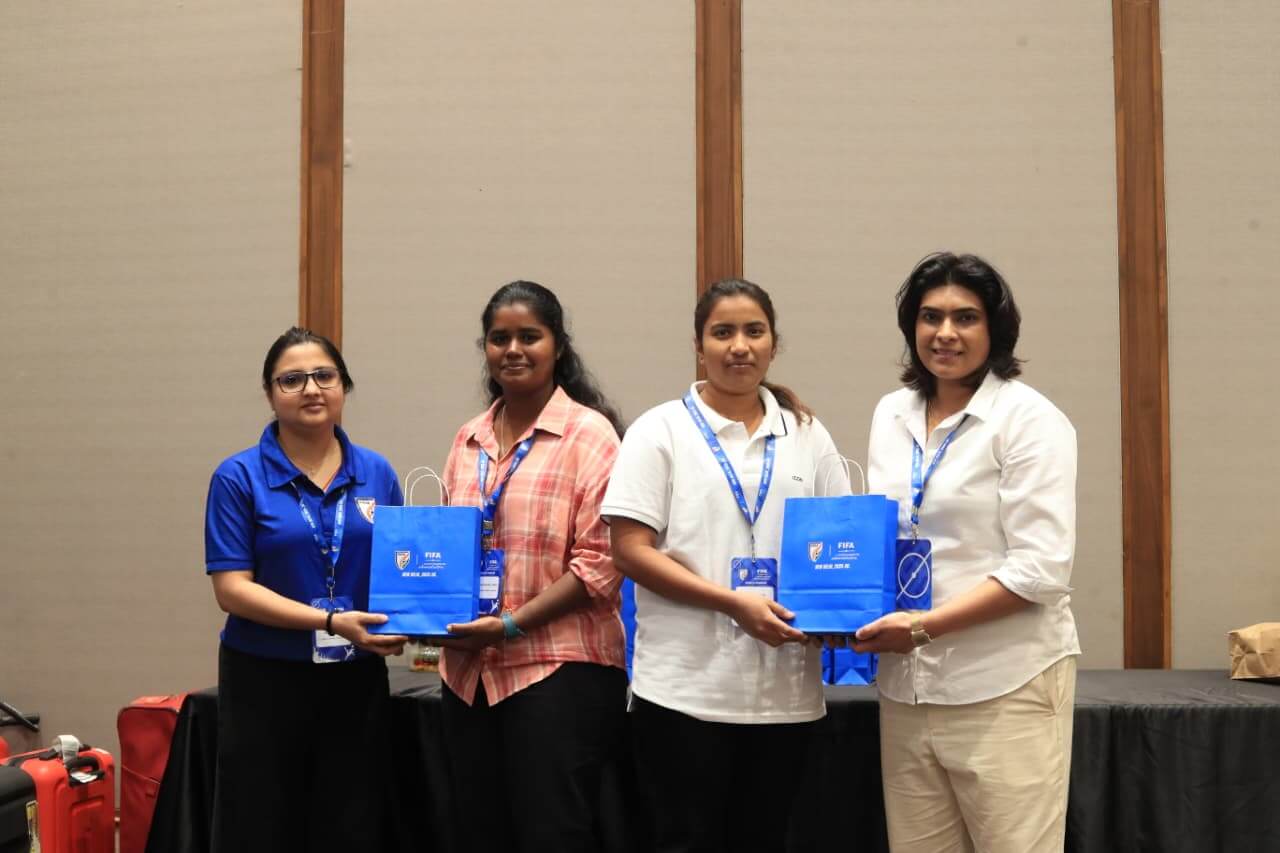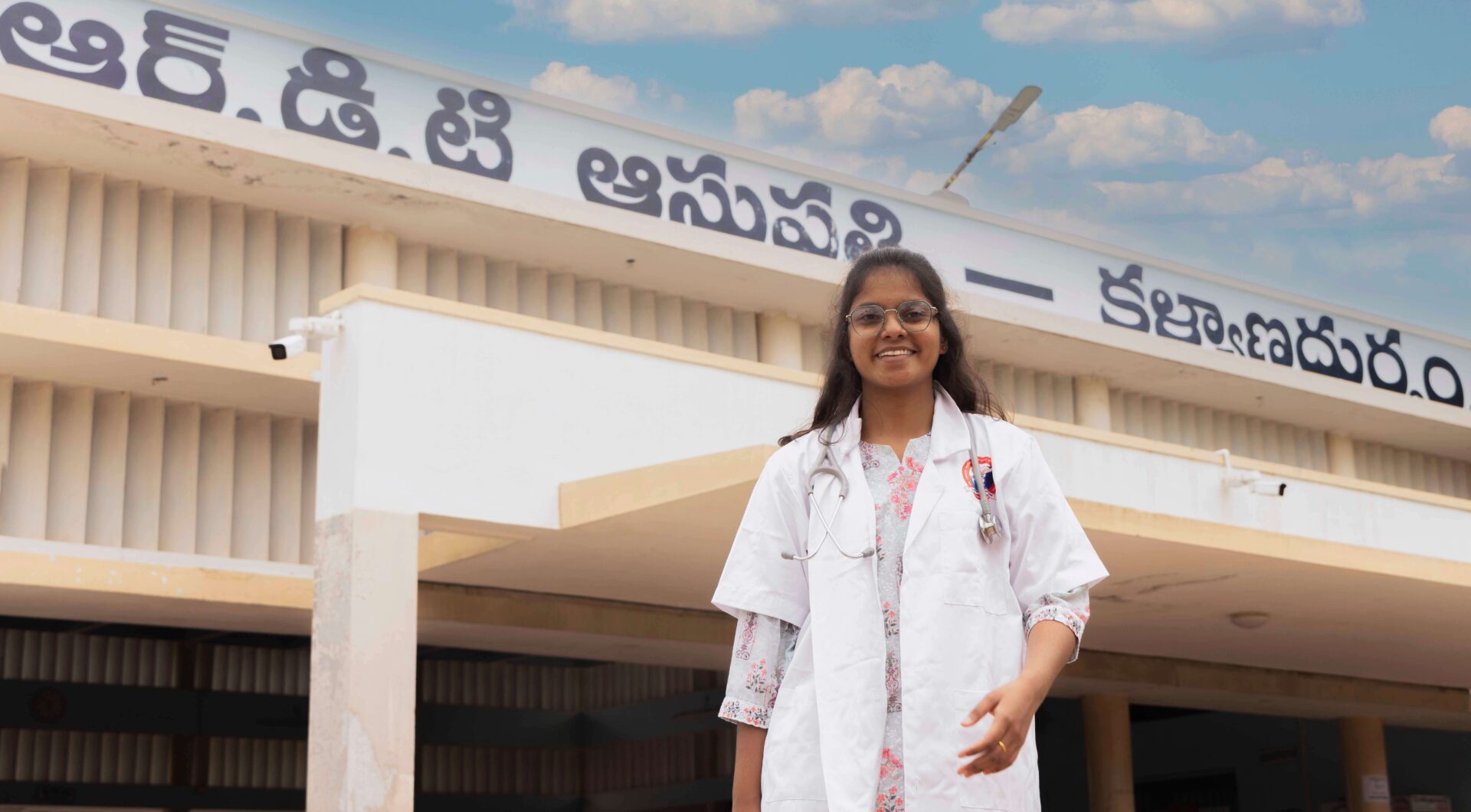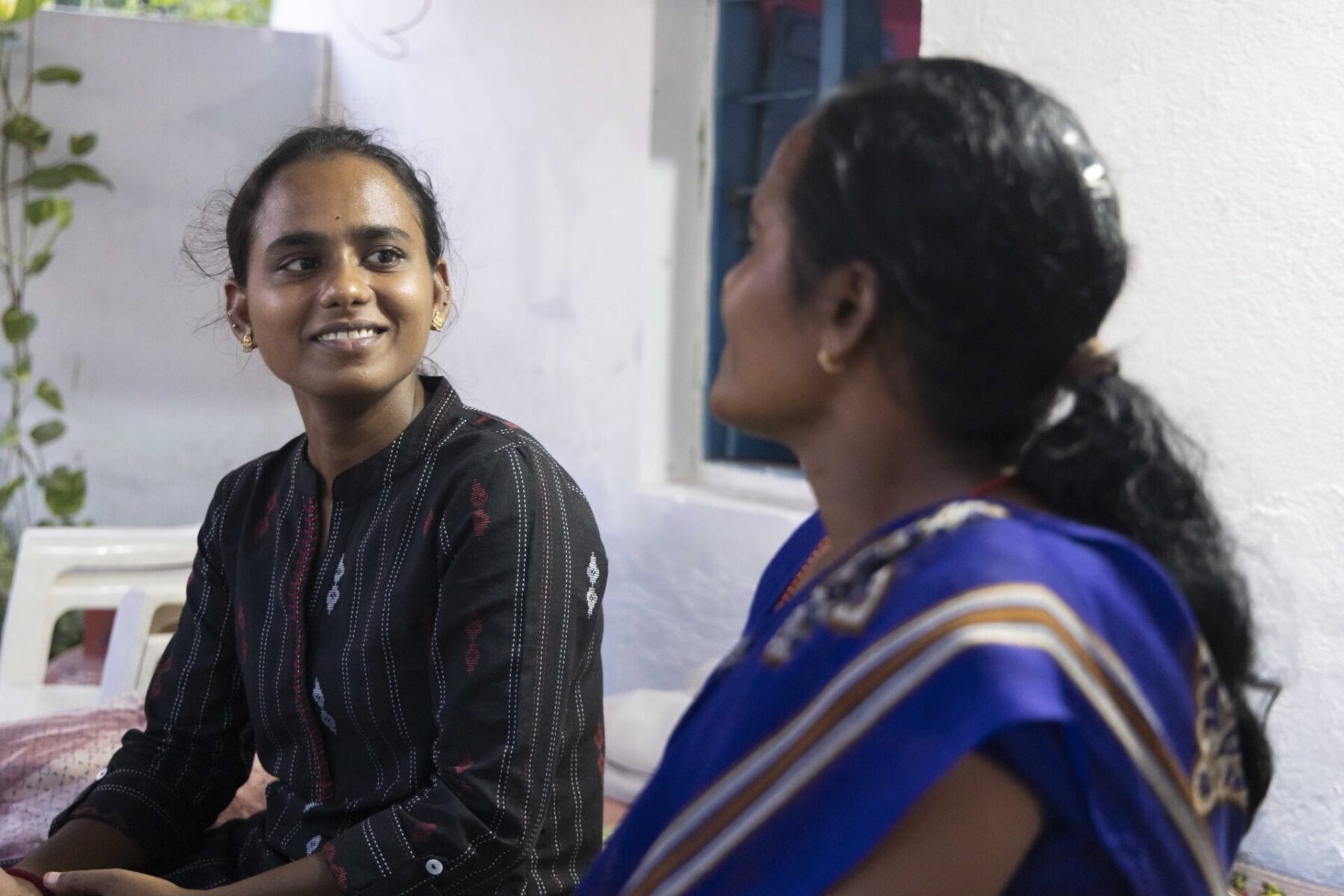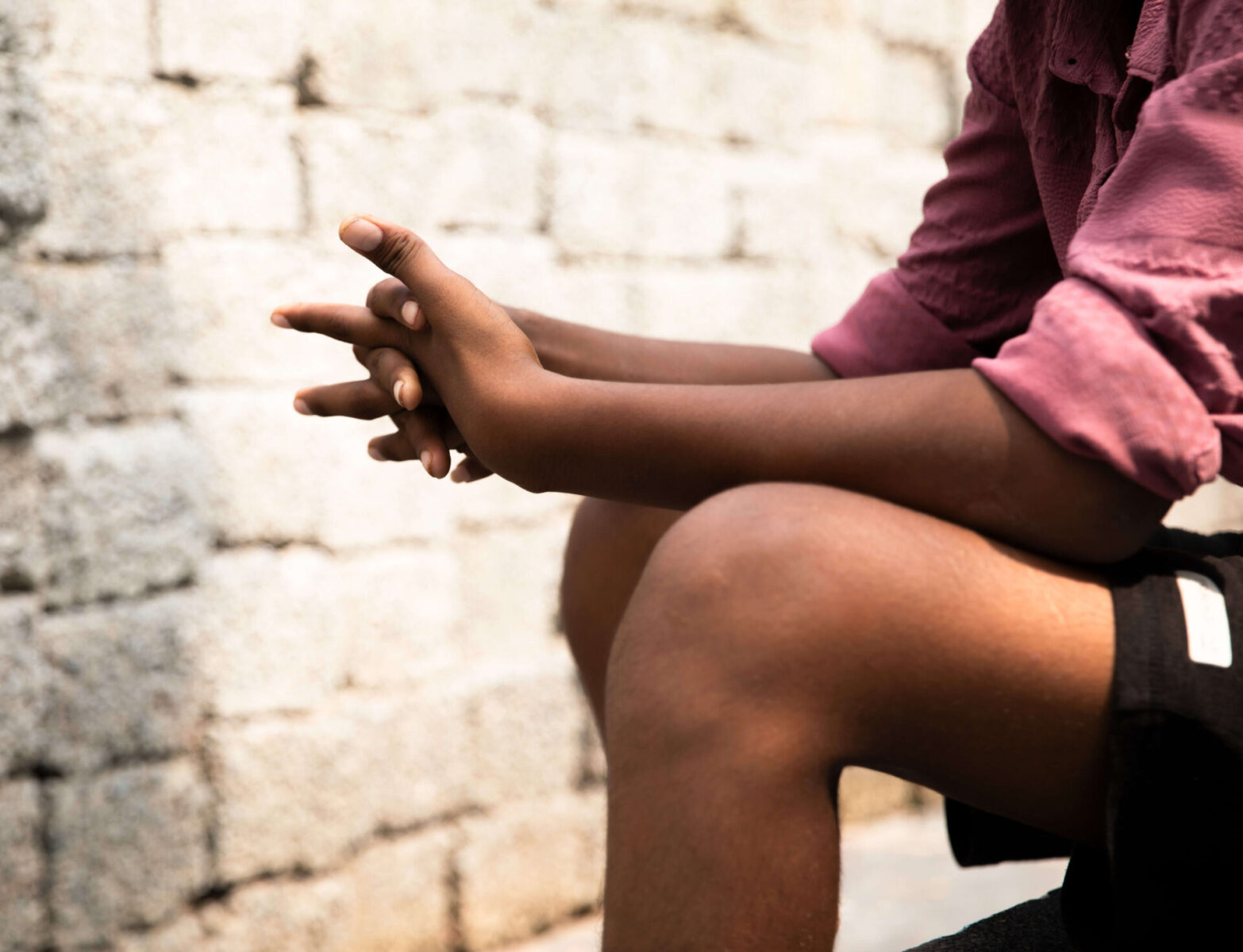As the novel corona virus wreaks havoc globally and countries put their best foot forward to fight it, the government is joined by various civil society organisations at different levels for more effective and quick response.
Abiding by RDT’s dharma -Work beyond duty – the present times demand that we try to push beyond our capacities. That’s why RDT has decided to act as a single unit since the beginning of the COVID-19 outbreak in India, using all its resources and expertise to contain and fight this pandemic.
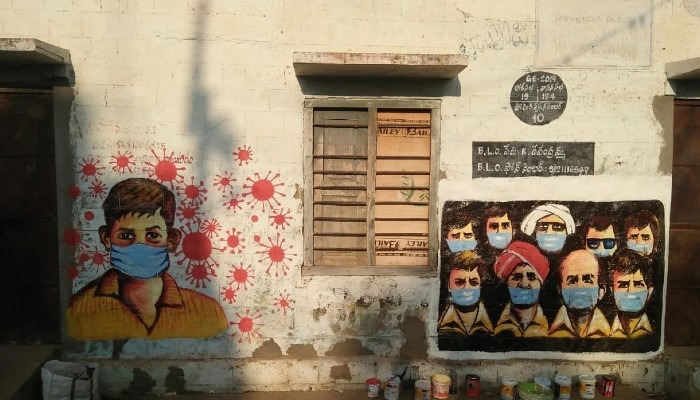
Following the guidelines of the Government and local authorities and answering their request as well as keeping people’s needs in mind, presently RDT is working in four main areas: Awareness at the grassroots level, health care, food distribution for migrants and daily wagers, and the production and distribution of preventive materials such as face masks and hand sanitiser.
Awareness at the grassroots level in coordination with the authorities:
RDT grassroots staff, working in eight regions,are putting all their efforts in awareness, using materials produced by RDT (pamphlets and posters made in consultation with RDT doctors) as well as the available resources such as microphones from the temples and drums in villages.
The awareness sessions are conducted with the support of Asha workers, anganwadi teachers, Community-Based teachers (CBTs), youth leaders, Community Development Committee (CDC), Ecology Development Committee (EDC), network leaders among other grassroots organisations. CDC members,CBT teachers and Rural Health Workers play a crucial role, as in many villages these have been the one to take the lead in promoting social distancing in the colonies by drawing marks on the floor.
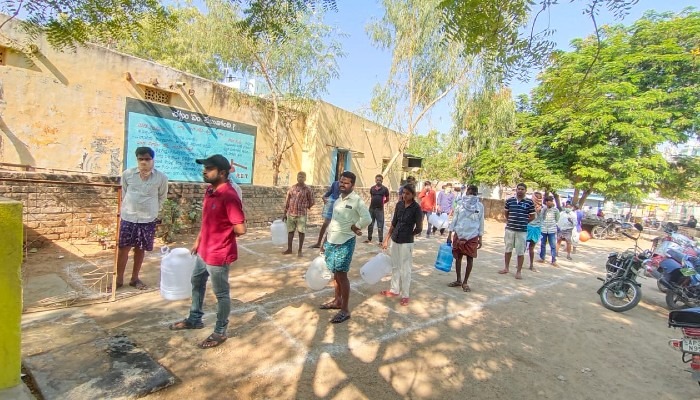
In some regions such as Adoni or SrisailamRDT is using the mobile library and the ambulance to reach remote places.

“It is giving us great strength to see how the people from the villages are taking the initiative to distribute food for those in need, drawing circles on the floor and setting up barricades at the entrance of the villages to prevent anyone from entering or leaving the village, as well as to ensure that those who are coming back from abroad or other parts of India are isolating themselves,” expresses Ms. Anne Ferrer, RDT Executive Director. “People are aware and they are being responsible,” she adds.
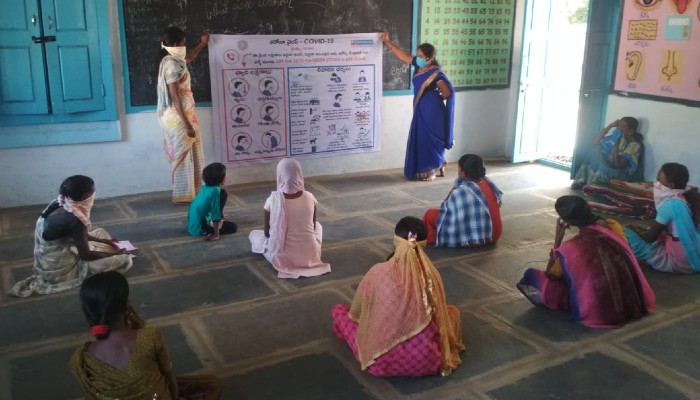
RDT Hospitals Network: Preparing RDT medical infrastructure
RDT Hospitals were among the first in the region to start a contention plan ad as per the indications of the Government and Bathalapalli Hospital has been one of the first centres in the district of Ananthapuramu to be designated as a COVID-19 Hospital by the District Collector, Sri Gandham Chandrudu, on 16th April. For this purpose RDT will make all its medical resources, amenities, facilities as well as manpower available to fight the COVID-19 pandemic.
After the announcement all services in Bathalapalli have been suspended and all the buildings of the hospital complex will be used only for COVID-19 patients, except the Care and Support Centre. The organisation has shifted BTP obstetrics department to one of its centres in Ananthapuramu town area and the first deliveries were practised on Monday 20th April. During the month of May more than 400 deliveries have been conducted in this temporary centre.
Due to the increase in the number of COVID-19 cases and the need of staff in Bathalapalli, the temporary centre for Gynaec and Obstetrics at Campus 2 will stopped from 1st July. Its staff was transferred to Bathalapalli COVID-19 Centre and the patients of that centre were be offered different options.
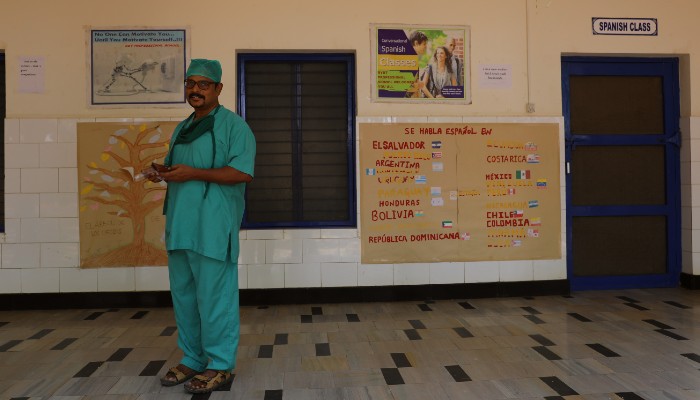
On April 12th the Goverment send a notice to inform that RDT Mycobateriology Laboratory, used until then for testing drug-resistant tuberculosis (TB), would start functioning as a COVID-19 testing centre. AP Government has provided the required material as well as trainings for staff.
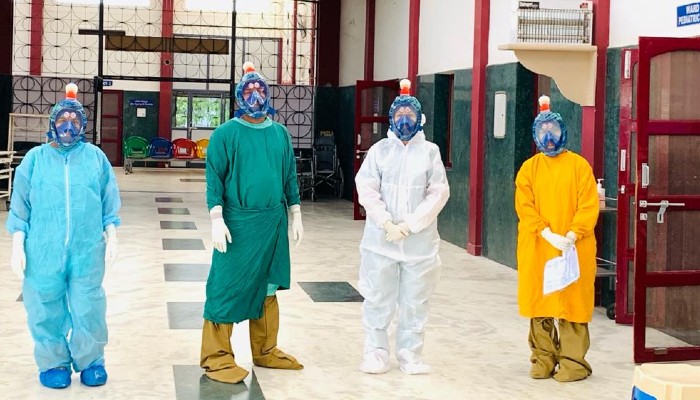
Doctors and nurses are being trained and new materials are being acquired (PPE, N95 Masks, surgical gowns, coveralls, facial shield). Some personal protection for emergency purpose is being prepared with the material available.
Kalyandurg and Kanekal Hospitals have established triage points in the premises of the Hospitals to inform the population of the new measures taken. Anyone with symptoms is at the moment asked to isolate himself/herself and to call the Government help lines. Any person arriving at the Hospital with fever is considered as COVID-19, until proved otherwise.
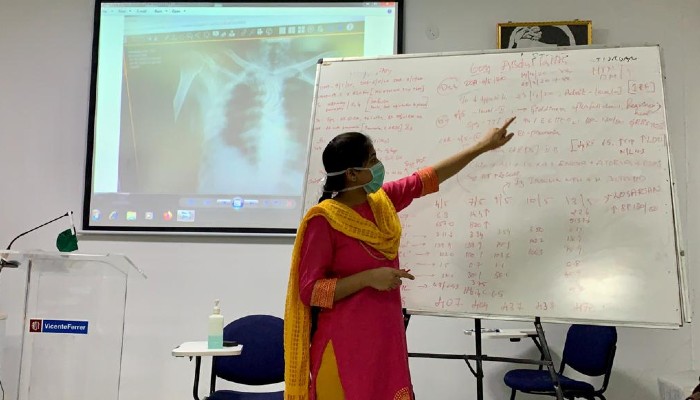
Food distribution for daily wagers and migrants
As per the Government’s request, since 31st March, RDT started distributing cooked meals and is providing over 10.000 meals every day to migrants and daily labourers for whom the lockdown has had serious consequences. The menu is based on 460 grams to 470 grams of rice item per person and is distributed at various points across the city established by the local authorities, as well as across the district. By 7th June the organisation had already distributed 4,09,484 cooked meals.
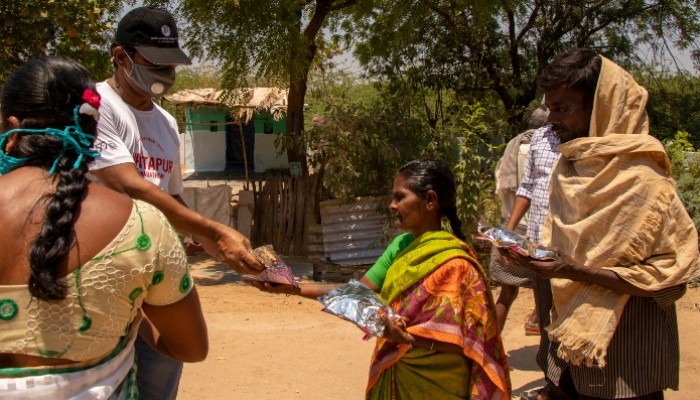
RDT staff working in state border regions such as Madakasira, Bukkaraya Samudram, Kadiri, Srisialam and Adoni is also providing food grains and basic provisions to migrants and daily workers who have lost their jobs and other people in vulnerable situation and who are desperately trying to reach home.
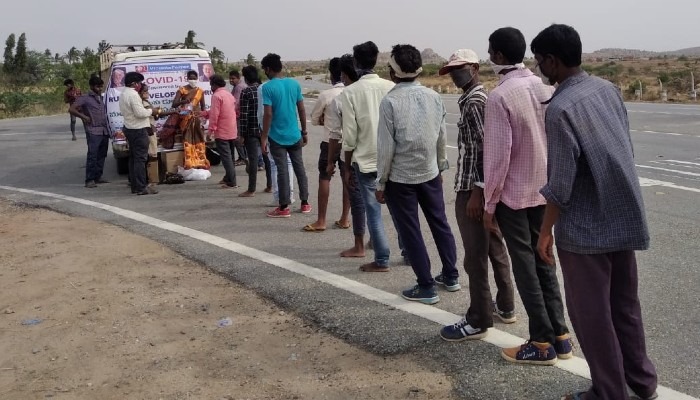
Protection for those for those at the frontline: Masks and hand sanitiser
More than 44,64,171 masks made out of 100% cotton cloth have been produced since 25th March by local tailors and IDT artisinas
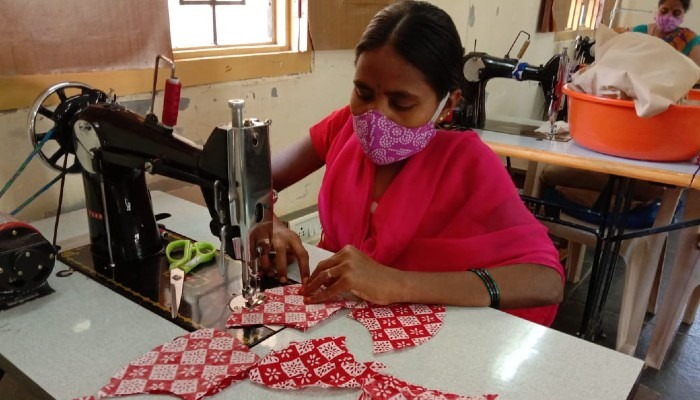
The masks are being distribute among RDT staff working on COVID-19 awareness at the grassroots level as well as to police officers, ANM nurses and other government employees on duty, always free of cost. Due to the increase in the demand IDT staff is also conducting workshops at the village level for those who have a stitching machine. “That way each family and community can be self reliant and make their own masks”, explains Safia Begum, the trainer. More than 2,800 local tailors are already involved in this programme. “We will continue to produce them as far as there is demand and our main areas of distribution are the red zones, ergo where they are more needed”, adds Moncho Ferrer, RDT Programme Director.
Each Hospital is also making masks for their own staff. Bathalapalli Hospital’s provision is to be able to give three masks for each staff member working at the hospital and other centre in the campus. The masks are made by nurses and counsellors of the Hospital and Care and Support Centre as well as Kotacheruvu women sangham members.
Bathalapalli Hospital is also producing 1,000 litres of alcohol-based solution per week for staff and patients as well as police and government officials on field.

